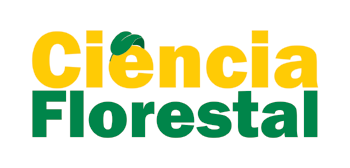ABSTRACT
The identification of species influencing the occurrence of other associated species is of fundamental importance for the success of forest restoration of degraded areas. The objective of this work is to present a phytosociological and socioeconomic index (IFSE), obtained by techniques of factor analysis, modeling six quantitative variables (abundance, frequency, dominance, biomass, the commercial value of timber and amount of non-timber forest products) and equal number of qualitative variables, whose dummy variable is equal to one, assumed value for those species whose higher earnings amounted to 50 % of the total for each quantitative variables analyzed. Sampling of the dense rain forest (407 ha) was composed by 80 plots of 0.25 ha (4.91 % of sampling intensity) and all individuals with diameter at 1.30 m above the ground (DBH) ≥ 10 cm were identified and measured. It was recorded 10,105 individuals, including 493 species covering 58 families. The species were ranked by the index proposed in three categories of priority phytosociological and socioeconomic status (high, medium and low). The appropriateness of factor analysis was determined by tests of Bartlett and KMO. The Bartlett's test evaluated the overall significance of the correlation matrix and indicated that correlations were significant at 1 % probability. The KMO test showed that the variables were correlated and the model of variance showed a very good level of fitness to the data. These results endorsed the use of factor analysis to extract factors and estimate the factor scores. The results were statistically validated for construction of the index IFSE and 25 species were selected as the priority ones (key species). And also, it was recomended the planting density for these forest species for restoration of degraded areas in Amazonia.
Keywords:
selection of tree species; multivariate analysis; forest restoration; key species
